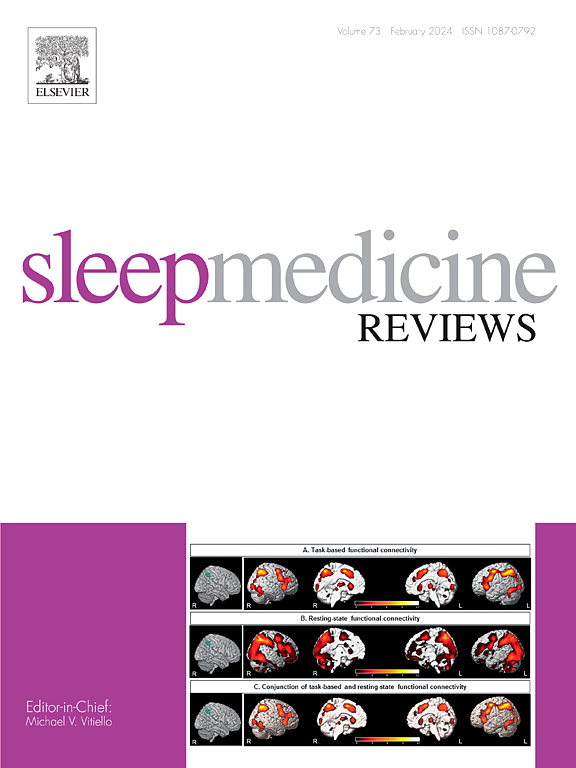The association between periodontal disease, dementia, and mild cognitive Impairment: Assessing the contribution of sleep disturbances and sleep disorders
IF 9.7
1区 医学
Q1 CLINICAL NEUROLOGY
引用次数: 0
Abstract
This review explores the potential role of sleep disturbances in the interaction between periodontal disease—a microbially driven, inflammatory condition causing bone loss and dentition damage—and the risk of cognitive impairment and dementia. Both periodontal disease and sleep disturbances, rise in parallel with aging, a period marked by cognitive changes. Our aims were to assess the strength and certainty of the proposed association to guide clinicians in addressing this question and advising patients. Sleep disturbances and periodontal disease are age-related, modifiable conditions that impact systemic health, yet their combined effect on cognition and dementia risk remains uncertain due to varying risk factors. Both conditions share inflammatory and oxidative stress pathways, which may contribute to periodontal disease and possibly cognitive decline, though causality remains unproven. Periodontal disease is also linked to other systemic conditions, such as diabetes and cardiovascular disease, through inflammation or bacterial spread. We discuss how chronic sleep disruptions may exacerbate periodontal inflammation and cognitive decline, with systemic inflammation potentially accelerating neurodegenerative processes. Integrating evidence from sleep medicine, neuroinflammation, and dentistry can help identify mechanisms to protect brain health. We emphasize the consideration of periodontal health and sleep assessments in individuals at risk for cognitive decline or dementia.
牙周病、痴呆和轻度认知障碍之间的关系:评估睡眠障碍和睡眠障碍的贡献
这篇综述探讨了睡眠障碍在牙周病(一种微生物驱动的炎症性疾病,导致骨质流失和牙列损伤)与认知障碍和痴呆风险之间相互作用中的潜在作用。牙周病和睡眠障碍都是随着年龄的增长而增加的,这一时期以认知变化为标志。我们的目的是评估所提出的关联的强度和确定性,以指导临床医生解决这个问题并为患者提供建议。睡眠障碍和牙周病是与年龄相关的、可改变的影响全身健康的疾病,但由于不同的风险因素,它们对认知和痴呆风险的综合影响仍不确定。这两种情况都有共同的炎症和氧化应激途径,这可能导致牙周病和可能的认知能力下降,尽管因果关系尚未得到证实。牙周病还通过炎症或细菌传播与其他全身性疾病有关,如糖尿病和心血管疾病。我们讨论了慢性睡眠中断如何加剧牙周炎症和认知能力下降,全身性炎症可能加速神经退行性过程。整合来自睡眠医学、神经炎症和牙科的证据可以帮助确定保护大脑健康的机制。我们强调对有认知能力下降或痴呆风险的个体进行牙周健康和睡眠评估。
本文章由计算机程序翻译,如有差异,请以英文原文为准。
求助全文
约1分钟内获得全文
求助全文
来源期刊

Sleep Medicine Reviews
医学-临床神经学
CiteScore
20.10
自引率
3.80%
发文量
107
期刊介绍:
Sleep Medicine Reviews offers global coverage of sleep disorders, exploring their origins, diagnosis, treatment, and implications for related conditions at both individual and public health levels.
Articles comprehensively review clinical information from peer-reviewed journals across various disciplines in sleep medicine, encompassing pulmonology, psychiatry, psychology, physiology, otolaryngology, pediatrics, geriatrics, cardiology, dentistry, nursing, neurology, and general medicine.
The journal features narrative reviews, systematic reviews, and editorials addressing areas of controversy, debate, and future research within the field.
 求助内容:
求助内容: 应助结果提醒方式:
应助结果提醒方式:


